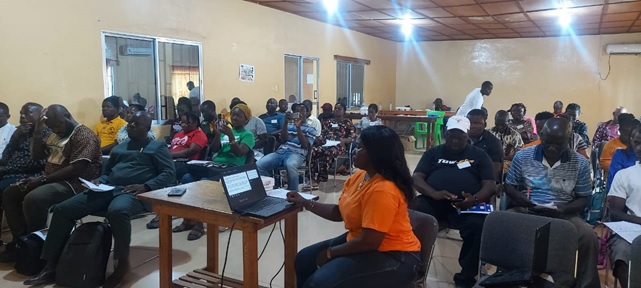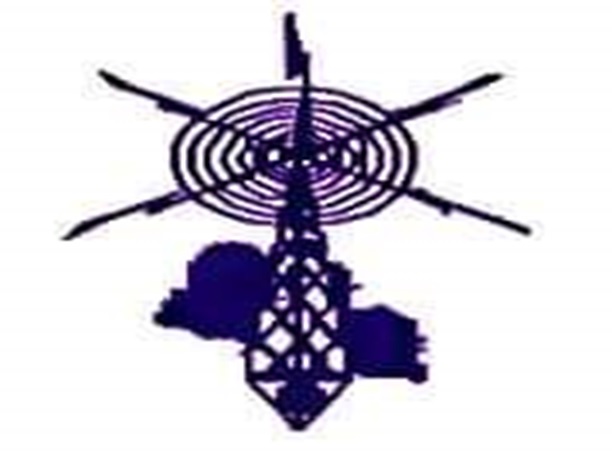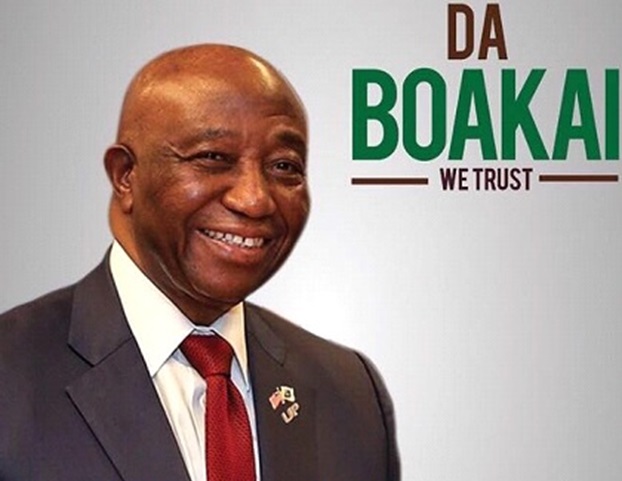In an effort to help Liberia achieve its goals outlined in Nationally Determined Contributions (NDCs) with emphasis on the forest sector, several civil society organizations within the environmental sector led by their umbrella organization – the National Civil Society Council of Liberia (NCSCL), have climaxed a one-day regional dialogue in Gbarnga, Bong County.
The dialogue was held on Friday, November 17, 2023 with support from the United Nations Development Program (UNDP).
Giving an overview of the project, the Chairperson of NCSCL, Madam Loretta Alethea Pope-Kai, explained that the regional dialogue amongst stakeholders was intended to identify policies and governance priorities for driving the implementation of the forestry sector’s NDC targets, through a project which is being supported by UNDP.
According to her, the Council under the UNDP supported project, will build network and strengthen partnerships by mobilizing national and local CSOs to engage regularly and effectively in forest NDC climate-related processes.
Madam Pope-Kai pointed out that the baseline is to enhance communication mechanisms to share updates on forest NDC action and relevant information to promote advocacy and policy brainstorming and support to the government and other stakeholders
Furthermore, the NCSCL head of NCSCL asserted that one of the major goals behind the project is to establish a multi-stakeholder driven process for tracking and reporting on NDC implementation in the forestry sector.
Madam Pope-Kai told the gathering that the project aims to ensure that at least 25% of priority degraded forest be restored by 2030.
“As the Apex body for all CSOs in Liberia with the influence and networking capacity, we will strengthen the multi-stakeholders working group (National Climate Change Steering Committee) to engage the FDA and the EPA on what has happen and how we can increase our stakeholders’ engagement to ensuring that the government meets up with this target priority. Our focus is not to re-invent the wheel but to work and strengthen the capacity existence structures,” said the Council boss.
As part of the many activities, NCSCL was able to identify different CSOs engaging on climate change and forest issues at the national and local level.
“We will set up a multi-stakeholders CSO platform with existence structure for advocacy, monitoring, reviewing and reporting on the implementation of Liberia’s forestry NDC target. We are also going to identify modalities for mobilizing financial support needed to support CSO engagement in the NDC process. Also, the Council will initiate a national conference amongst stakeholders including the government and development partners on the implementation roadmap of the NDCs,” the NCSCL boss explained to participants.
Madam Pope-Kai also mentioned that the Council will build network-building and partnerships for support (technical and coordinating) for CSOs to regularly engage and contribute to the climate change processes at national and local levels.
One of key expected outcome of the project, which is valued at US$30,000, is that NCSCL, through the CSOs Working Group on Climate Change the Forestry Targets, would develop one policy brief on the forest targets and disseminate that amongst stakeholders.
The group would engage the Forestry Development Authority (FDA) to develop a common approach for CSO advocacy, monitoring and information sharing and reporting on the implementation of the NDCs with a key focus on the forestry targets.
It also aims to build consensus with relevant CSOs in the sector to sustain network-building and partnerships for support (technical and coordinating) for CSOs to regularly engage and contribute to the climate change processes at national and local levels
The project also aims to strengthen coordination with the National Climate Change Steering Committee (NCCSC), and ensure that CSOs in the sector are aware of the forest targets through information sharing in monitoring the implementation of the NDCs.
Liberia is known to hold 43% of the Upper Guinean Rainforest, which is a significant portion under the West African biome (EPA, 2019).
Even though the country is noted for its advantages in biodiversity and forest cover, a recent land satellite land cover monitoring from the FDA indicates that from 2009 to 2022, Liberia has experienced deforestation in its Northwest and Southeast Forest covers landscapes and these are on the decrease while forest degradation has at least tripled everywhere (FDA, 2021).
The total tree cover loss is about 1,918,352 ha from 2001- 2020. However, the FDA has recommended that the country institutes a strong legal and operational framework to manage and sustain the remaining forest resources in Liberia.
Besides, Liberia’s NDC has set targets for the Forestry sector to reduce the national deforestation rate by 50% by 2030 (EPA, 2021). Additionally, the NDC has proposed that the country restore about 25% of priority degraded forests by 2030 and at the same time establish five new Protected Areas to complement the existing government commitment to increase forest Protected Areas to 1.5 million ha, ensuring a 3km buffer zone, by 2030 (EPA, 2021). Under Climate Promise 2.0, Liberia is one of the countries receiving funds from the UK’s DEFRA for a national project.







